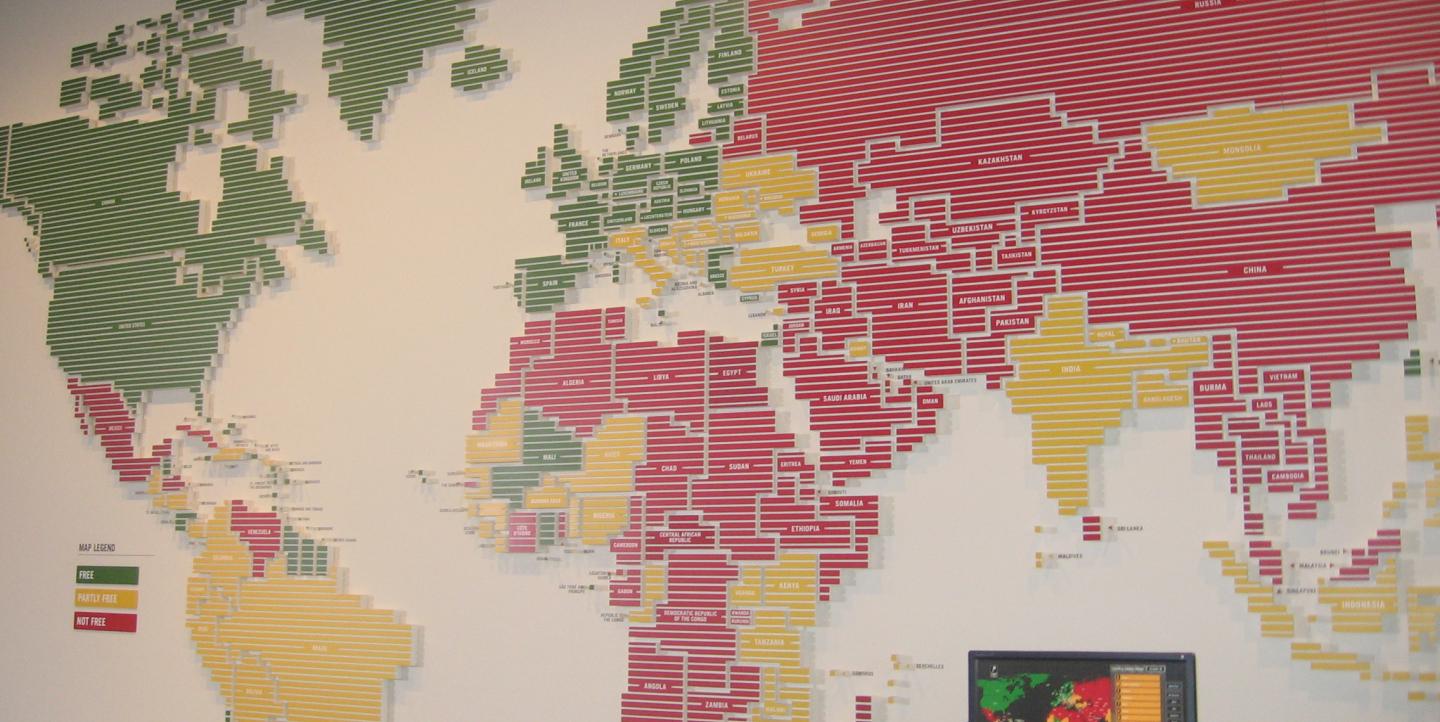A panel of journalists and experts at the World Press Freedom Day global conference at the Newseum expressed hope Monday that people would continue to use social media to fight oppressive regimes, despite censorship tactics used by those governments.
Some of those tactics include tracking protests, shutting down social media sites and discrediting bloggers.
“I don’t believe in technologies, but I hope in people,” said Chiranuch Premchaiporn, who is director and webmaster of Prachatai, an alternative news website in Thailand.
Premchaiporn, who faces charges in Thailand for disparaging the Thai monarchy, spoke at a panel titled “New Barriers: Censorship in the Digital Age” at World Press Freedom Day in Washington, D.C.
Premchaiporn faces up to 82 years in prison in Thailand for violating the country’s 2007 Computer-Related Offences Commission Act. Government officials are holding her liable for negative online posts about the monarchy even though she did not make the comments and she removed them as soon as the Thai police notified her of the posts.
Social media outlets, such as Facebook and Twitter, are making it easier for citizens of oppressive regimes to organize protests and expose wrongdoing, said Wael Abbas, founder and blogger for Misr Digital in Egypt. He has gained credibility - and widespread attention—from readers by posting videos of police crackdowns on YouTube.
Poverty is not insurmountable, Abbas and other panelists said. Although only 25 percent of the Egyptian population has Internet access, most people – even in rural areas – have mobile phones. It costs little to access the Internet at cyber cafes, where people download information and share it with others, he said.
The government does not have enough people to monitor the phone calls, Abbas said. Protesters have used SMS texts to relocate protests in real-time to avoid police crackdowns.
Governments, however, also are finding innovative ways to use new media. In China, the government tracks bloggers and posts false information to try to discredit the ones it doesn’t like, a practice used in other countries, said Xiao Qiang, a Chinese expatriate who is director of the China Internet Project at UC-Berkley. The Chinese government has arrested bloggers and shut down Twitter.
Nevertheless, the Internet has provided an alternative source of news, Qiang said.
“People have more of a sense of what they’re not being told,” he said.
The panelists agreed that new media has provided a catalyst for change, but ultimately, people bring about reform.
“Without social media they could have a revolution, but maybe later and in a slower fashion,” Abbas said.
Michael Koma, an audience member and journalist from South Sudan, said that the panelists’ comments might help his country in the future as it wades deeper into social media. Although most of his readers do not have Internet access, they do have mobile phones and already use them to tip him off to stories.
“There is no reason to be pessimistic,” said Koma, who writes for The Juba Post. “I’m hopeful in 10 years time that it [social media] will make a difference.”
You can read more of IJNet's ongoing coverage of World Press Freedom Day here.
The United Nations Education, Scientific, and Cultural Organization (UNESCO) organizes World Press Freedom Day commemorations to celebrate the fundamental principles of press freedom; to evaluate press freedom; to defend the media from attacks on their independence and to pay tribute to journalists who have lost their lives in the line of duty. For complete information on the 2011 World Press Freedom Day global conference in Washington DC, see www.wpfd2011.org (in English).

